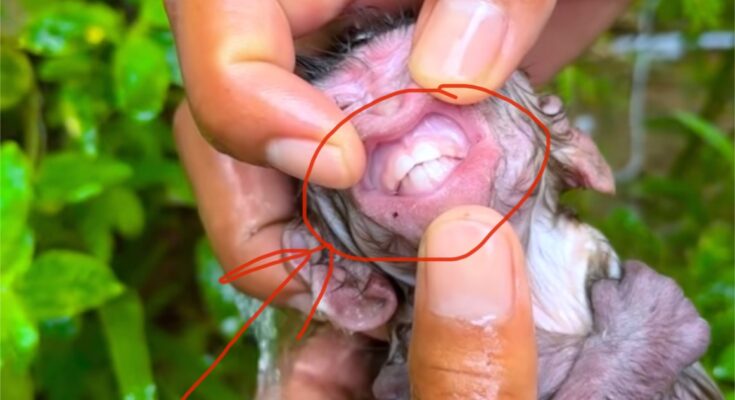Caring for a baby monkey requires close attention, especially when it comes to health issues like fever. Just like human infants, baby monkeys are highly vulnerable to infections, dehydration, and sudden changes in temperature. A high fever is often a sign that the body is fighting an underlying illness, and prompt action is essential. Here is a clear, practical guide on what to do if a baby monkey develops a high fever.
1. Stay Calm and Observe Symptoms
The first step is to remain calm and closely monitor the baby monkey. Signs of a high fever may include:
-
Warm or hot skin
-
Weakness or lethargy
-
Reduced appetite
-
Shivering or abnormal breathing
-
Irritability or excessive clinginess
Keep a detailed note of when these symptoms began and how they change over time.
2. Measure the Temperature Correctly
Use a digital thermometer for accuracy. The most reliable method is to measure rectally, but if the baby monkey is stressed, you can take an underarm reading. Normal body temperature for most monkeys ranges from 37°C to 39°C (98.6°F to 102.2°F). Anything above this range is considered a fever. If the temperature rises above 40°C (104°F), it becomes an emergency.
3. Provide Immediate Comfort and Cooling
While waiting to consult a veterinarian, you can help the baby monkey feel more comfortable:
-
Place the monkey in a cool, well-ventilated environment, away from direct sunlight.
-
Use a slightly damp cloth to gently wipe its body. Avoid cold water or ice, as sudden temperature drops can cause shock.
-
Offer clean, fresh water or electrolyte solution to help prevent dehydration. Baby monkeys can become dehydrated quickly, so small, frequent sips are important.
4. Do NOT Give Human Medicine
This is a critical rule. Never give a baby monkey human fever medications like paracetamol or ibuprofen. These can be toxic and potentially fatal. Monkeys metabolize drugs differently, and only a trained veterinarian should prescribe any medication.
5. Identify Possible Causes
High fever can result from several factors:
-
Viral or bacterial infections
-
Parasites
-
Exposure to extreme heat
-
Stress or injury
-
Poor hygiene or improper diet
Understanding possible causes can help the vet make a quicker diagnosis. Think about recent changes in environment, diet, or behavior that could be linked to the fever.
6. Seek Veterinary Care Immediately
Contact a veterinarian who specializes in primates as soon as possible. Early treatment is essential because baby monkeys’ conditions can deteriorate rapidly. The vet may perform tests such as blood work, stool analysis, or viral screening to identify the cause of the fever.
If primate-specific vets are not available, seek help from a general exotic-animal veterinarian and clearly explain the symptoms and temperature readings.
7. Maintain Cleanliness and Reduce Stress
Until the baby monkey recovers, keep its living space clean, warm (but not hot), and quiet. Reduce handling to avoid additional stress. Ensure the baby is not exposed to sick animals and that its bedding is dry and comfortable.
Conclusion
A high fever in a baby monkey is a serious condition that requires quick and thoughtful action. By observing symptoms closely, providing gentle cooling, avoiding harmful medications, and seeking immediate veterinary help, you can significantly improve the baby monkey’s chances of recovery. Proper care, a clean environment, and early intervention are the keys to keeping young primates healthy and safe.



